Instituting a Search Process for the Next Chancellor of UP Mindanao
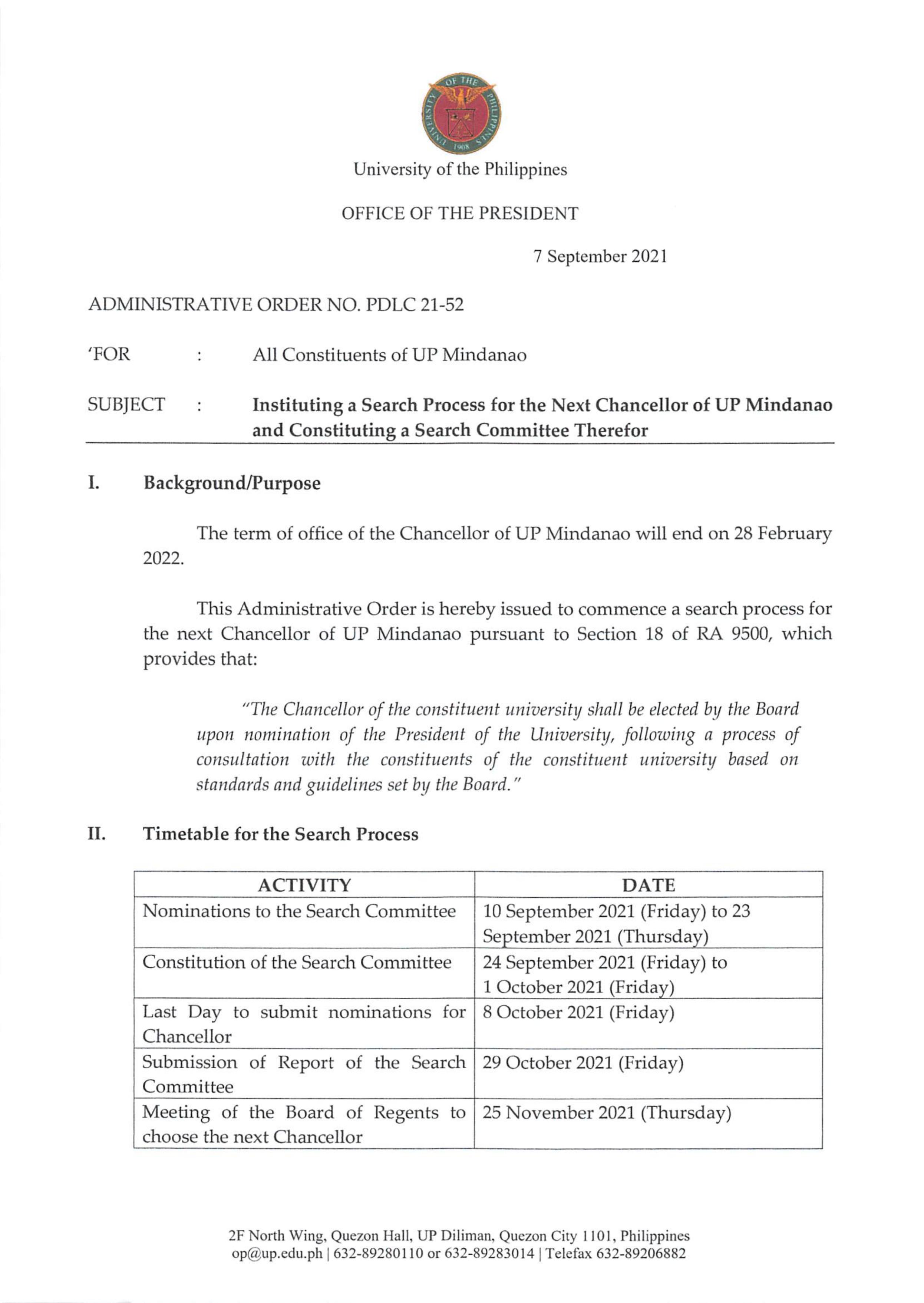 |
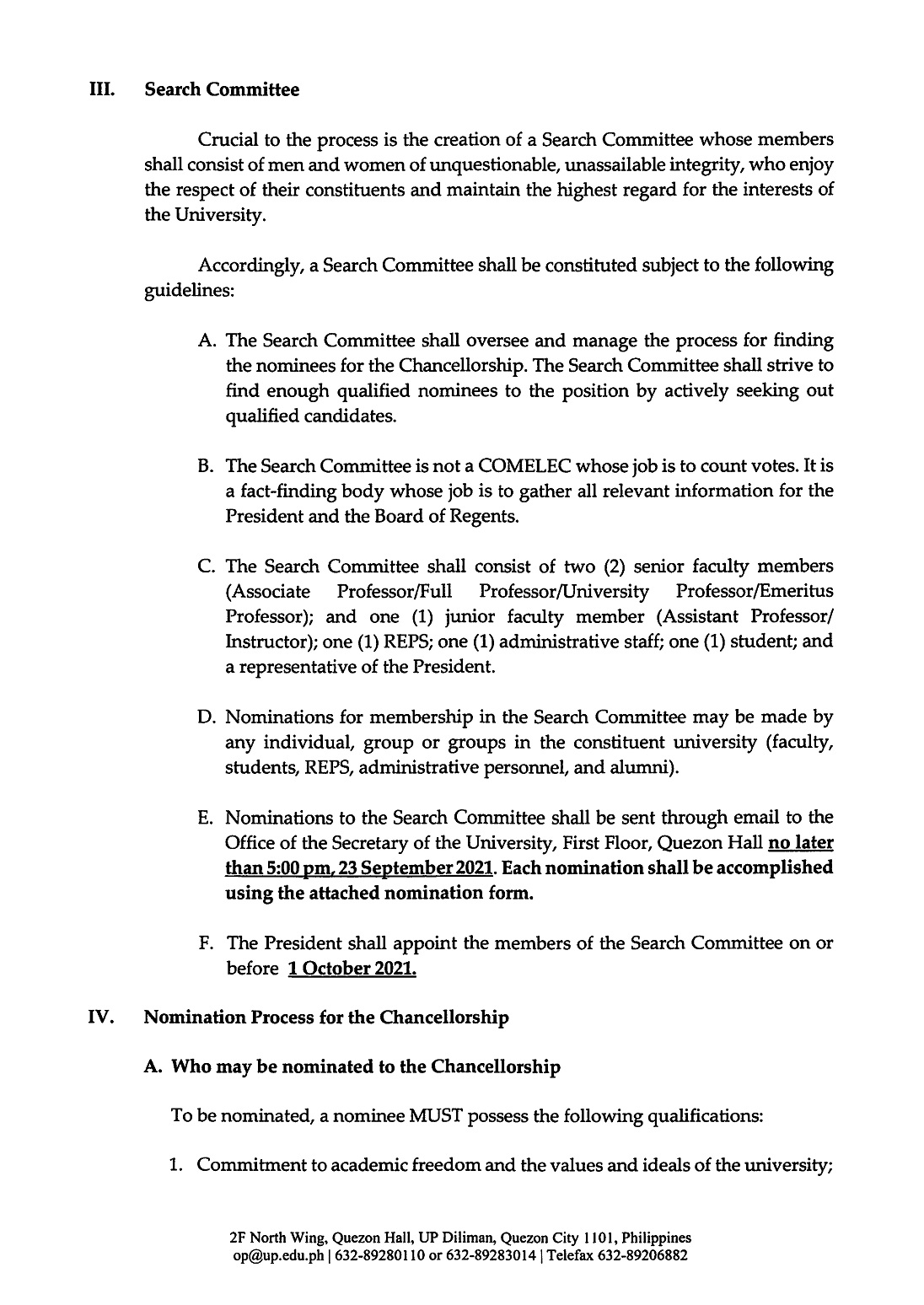 |
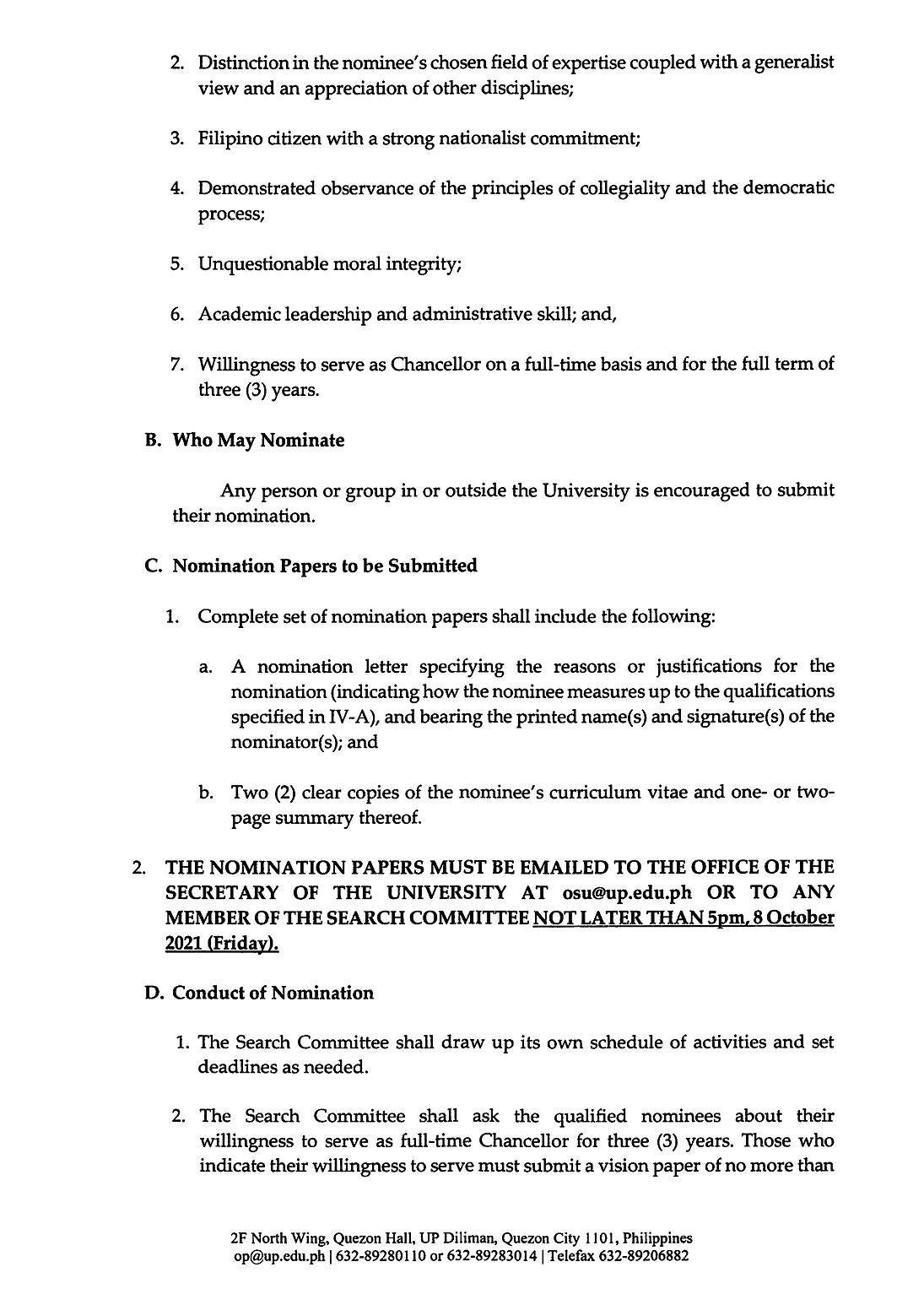 |
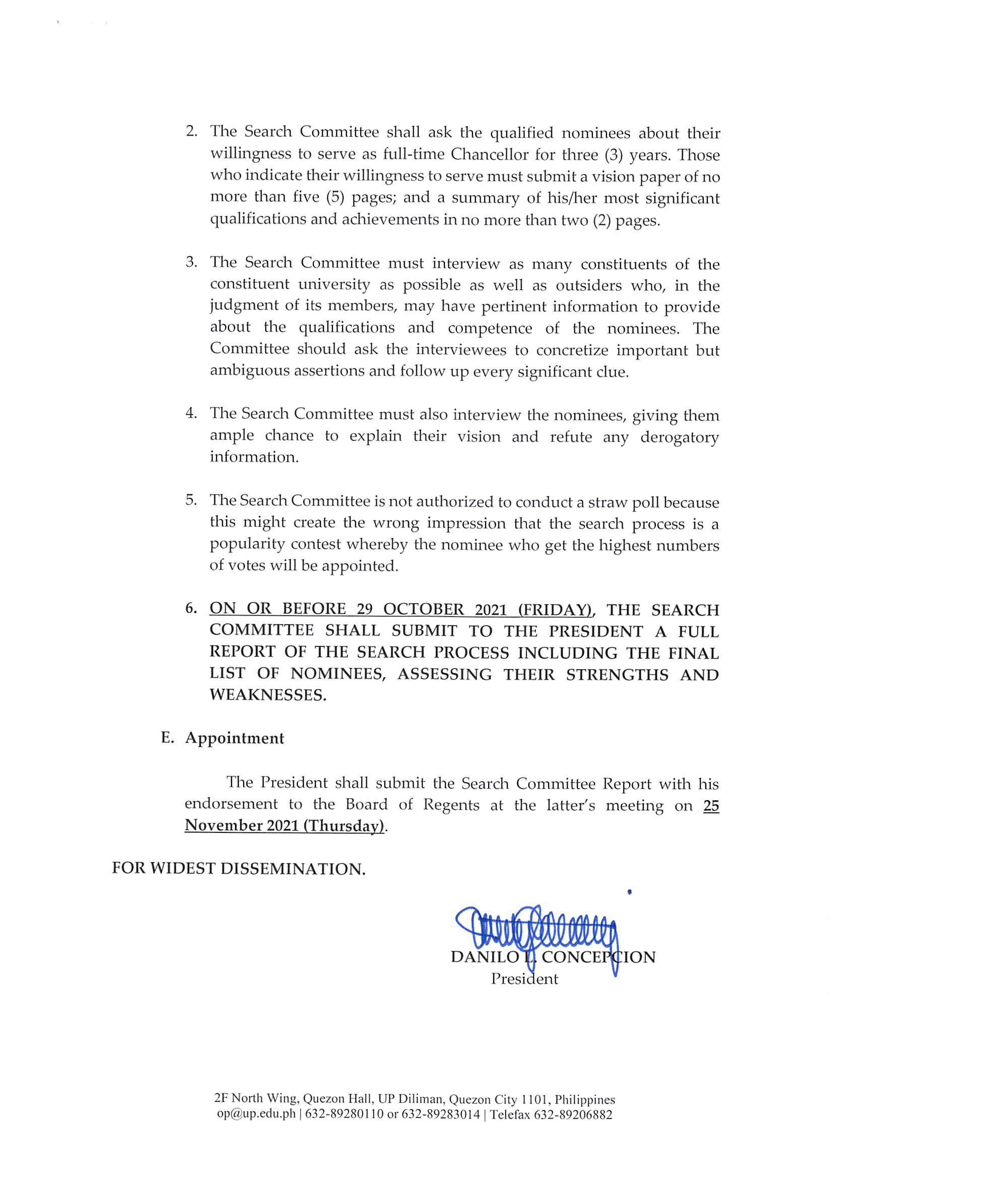 |
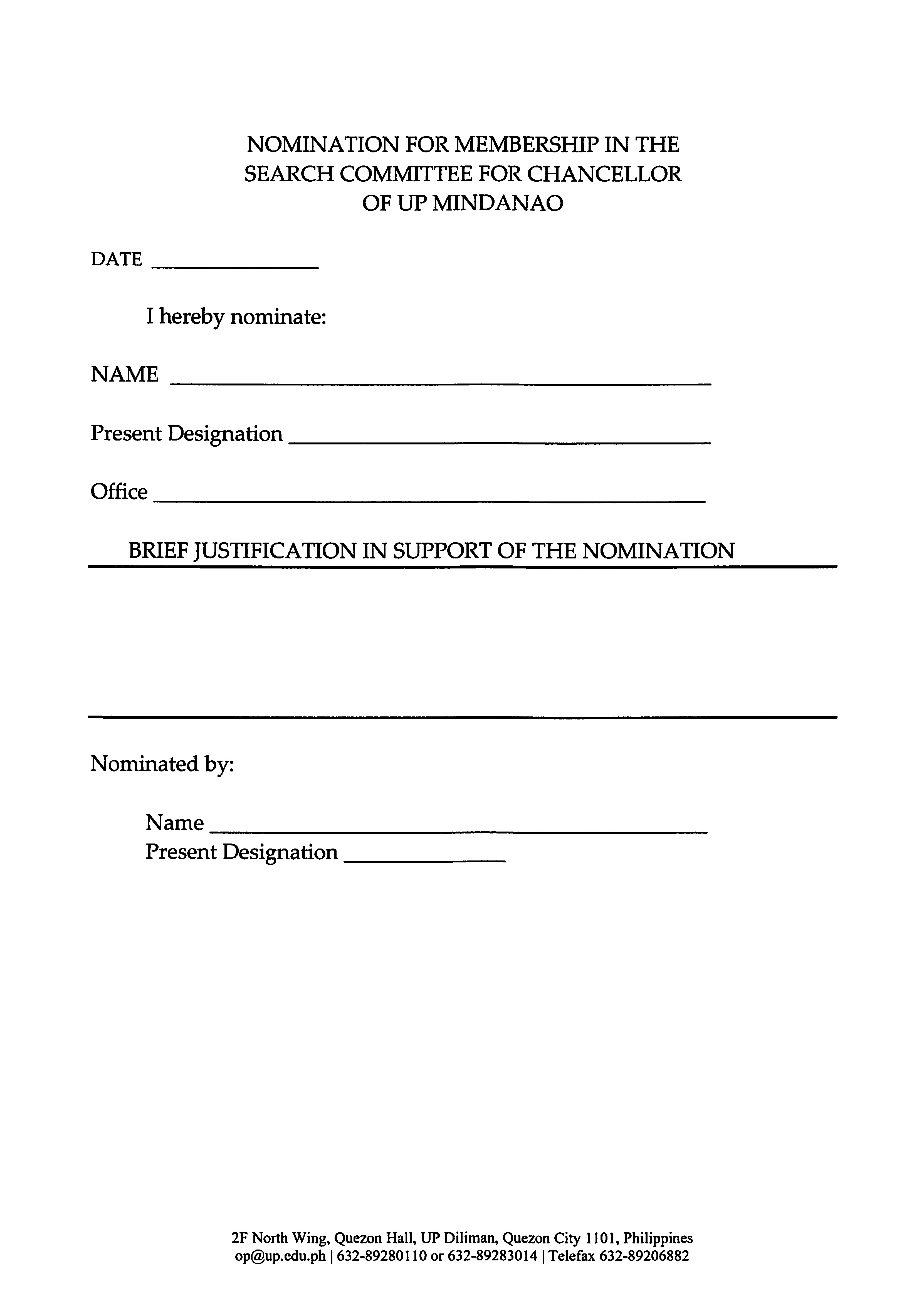 |
UP Mindanao Convocation goes virtual in 2021; enrollment increases by 18%
by Ena Marie Olivares-Dizon
Defined by their mission-driven grit and unity as a university, the University of the Philippines Mindanao welcomed its new students on 13 September 2021 with open arms—and inspired to ‘make the impossible possible’—during such an unprecedented time.
Two batches of students – from Academic Years 2020–2021 and 2021–2022 – were welcomed in this annual event through its first-ever online University Convocation, marking the start of classes for the First Semester of Academic Year 2021-2022.
While UP Mindanao entered the academic year virtually due to COVID-19, it managed to cater to 368 new students comprising batch 2021.
According to University Registrar Assoc. Prof. Vladimer B. Kobayashi, the 368 enrollees this year represented an 18% increase in first-year students compared to the 312 first-year students of batch 2020, who were also present and welcomed on the same day after the cancellation of the convocation ceremony in 2020 due to the pandemic.
These undergraduate students from the nine existing degree programs of the university were joined by the 21 pioneering members of the Associate in Arts Sports Studies (AASS) degree program, UP Mindanao’s newest academic offering, which caters to experienced and exceptional student-athletes.
The College of Humanities and Social Sciences (CHSS) had the highest intake with 342 new students, followed by the College of Science and Mathematics (CSM) with 275, and the School of Management (SOM) – which offers one undergraduate degree program at present – with 62 new students.
Prof. Kobayashi further noted that “there is a sharp increase in enrollment for BS Agribusiness Economics, BS Applied Mathematics, and BA English.” Moreover, he observed that enrollment figures for each of the degree programs“ are now at least 30,” expressing a new benchmark in some of UP Mindanao’s undergraduate degree programs that have had low admission rates in the past.
By degree program of the CHSS, BS Architecture has 56 new students from batch 2020 and 58 from batch 2021; BS Anthropology has 34 and 30; BA Communication and Media Arts has 44 and 43; BA English has 24 and 33; the new AASS program has 21.
In the CSM, the BS Applied Mathematics program has 21 second-year and 33 first-year students; BS Biology has 40 and 43; BS Computer Science has 34 and 39; BS Food Technology has 32 in the second-year cohort and 33 students in the first-year group.
In the SOM, the BS Agribusiness Economics program has 27 second-year and 35 first-year students.
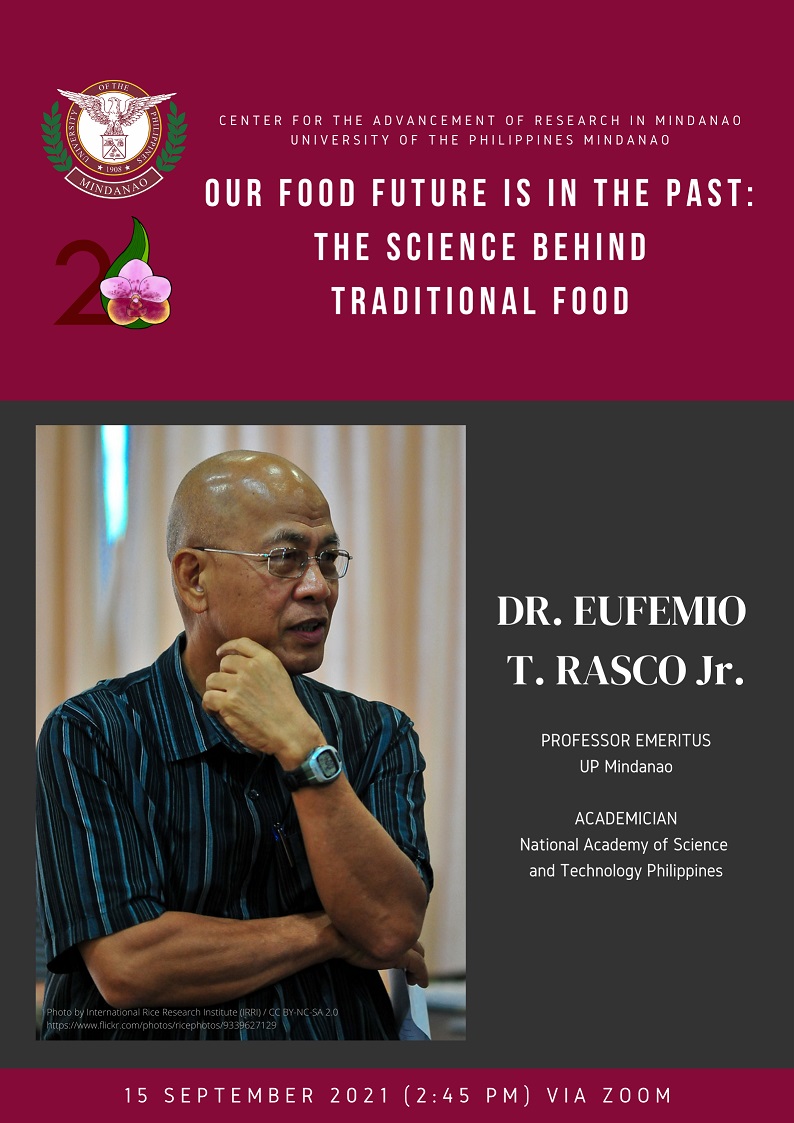 The University of the Philippines Mindanao’s Center for the Advancement of Research in Mindanao (CARIM) will be hosting a lecture entitled “Our Food Future Is In The Past: The Science Behind Traditional Food” on 15 September 2021 (2:45 PM) via Zoom. Prof. Eufemio T. Rasco Jr., PhD, UP Mindanao’s Professor Emeritus and NAST Academician, will deliver the lecture. As a seasoned scientist and academician, Prof. Rasco has extensive experience and track record in research, development, and extension on plant breeding and agricultural biotechnology. This webinar is organized by CARIM to respond to the challenges in food supply chain, logistics, and health and well-being of our society during these trying times of the COVID-19 pandemic.
The University of the Philippines Mindanao’s Center for the Advancement of Research in Mindanao (CARIM) will be hosting a lecture entitled “Our Food Future Is In The Past: The Science Behind Traditional Food” on 15 September 2021 (2:45 PM) via Zoom. Prof. Eufemio T. Rasco Jr., PhD, UP Mindanao’s Professor Emeritus and NAST Academician, will deliver the lecture. As a seasoned scientist and academician, Prof. Rasco has extensive experience and track record in research, development, and extension on plant breeding and agricultural biotechnology. This webinar is organized by CARIM to respond to the challenges in food supply chain, logistics, and health and well-being of our society during these trying times of the COVID-19 pandemic.
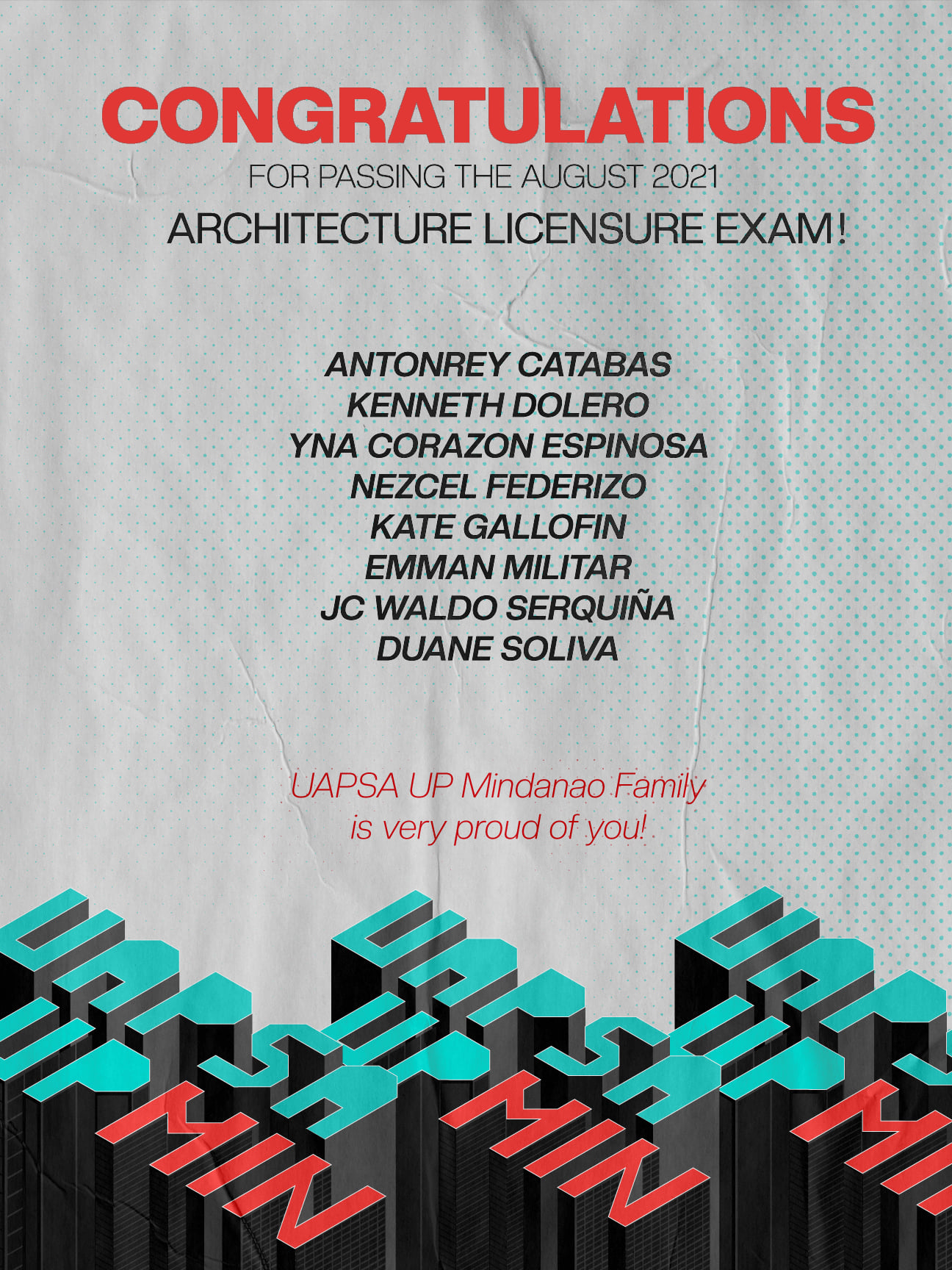 The UP Mindanao takes pride in the 100%-passing performance in the Licensure Exam for Architects of the following BS Architecture graduates:
The UP Mindanao takes pride in the 100%-passing performance in the Licensure Exam for Architects of the following BS Architecture graduates: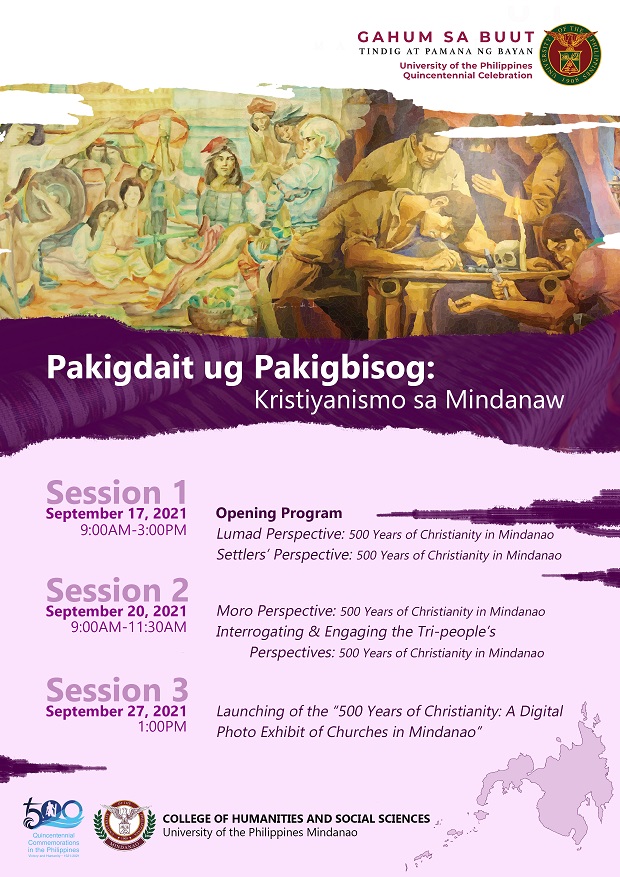
The UP Mindanao College of Humanities and Social Sciences invites you to a three-part activity in observance of the UP Mindanao’s Quincentennial Commemoration with the localized theme, "Pakigdait ug Pakigbisog: Kristiyanismo sa Mindanaw" on September 17, 20 & 27, 2021 via mixed online platforms.
ZOOM WEBINAR SERIES
The Department of Social Sciences in partnership with Mindanao Studies Center and Office of the Dean will be conducting a two-part webinar series "Pakigdait ug Pakigbisog: Kristiyanismo sa Mindanaw" via Zoom Webinar. The webinar will feature 10 scholars & attempt to foreground the narratives of Lumad, Moro, & Settlers (dayo) in terms of their accommodation, modes of resistance, & consolidation within the context of 500 years of Christianity in Mindanao.
Session 1: Lumad & Settlers’ Perspective: 500 Years of Christianity in Mindanao
September 17, 2021 (9:00 AM–3:00 PM)
Session 2: Moro Perspective & Interrogating/Engaging the Tri-People’s Perspective: 500 Years of Christianity in Mindanao
September 20, 2021 (9:00 AM–11:45 AM)
Register Here: https://up-edu.zoom.us/webinar/register/WN_W9U1P3zyRV6FL4gL5go9JA
*Links are reusable for Session 1&2. You may attend either session with the link provided
Note: Audience is encouraged to read Sir Rodil’s articles in advance as there will only be an open forum for his time slot.
Articles Link: https://drive.google.com/drive/folders/1mJ074dyjicLwpG6O0rnWyu5-3XUiNrmG?usp=sharing
The Department of Architecture will launch a Digital Photo Exhibit entitled 500 Years of Christianity: A Digital Photo Exhibit of Churches in Mindanao on September 27 via UP Mindanao DA Facebook page. This digital exhibit will present eight churches built in the areas of Northern Mindanao on the latter part of the 1800s & will showcase actual photos of the façade & schematics of the floor plan. Highlighted in this digital exhibit are the identified sacred geometric patterns present on various parts of the church – a representation of the perfection of nature and the human’s place in the center of the universe.
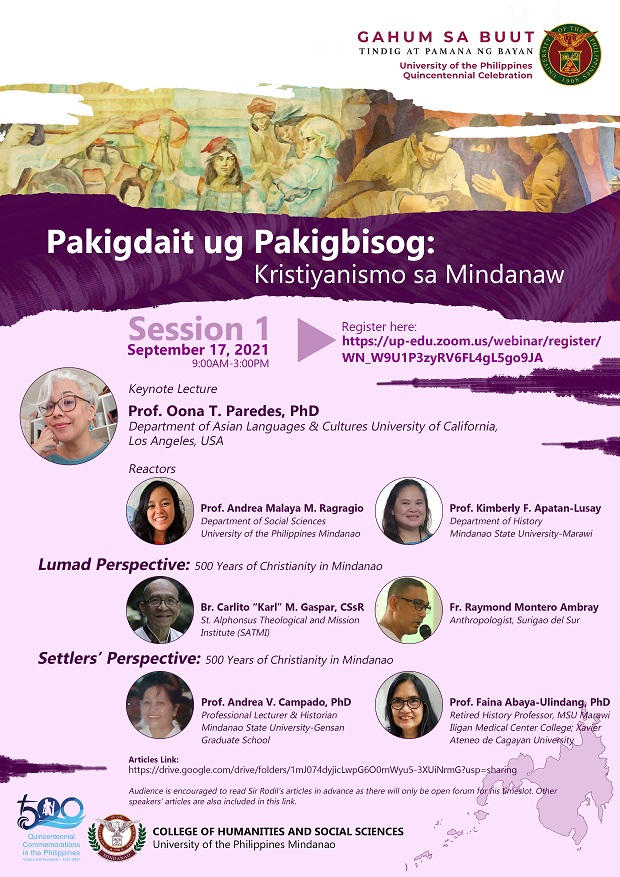 |
||
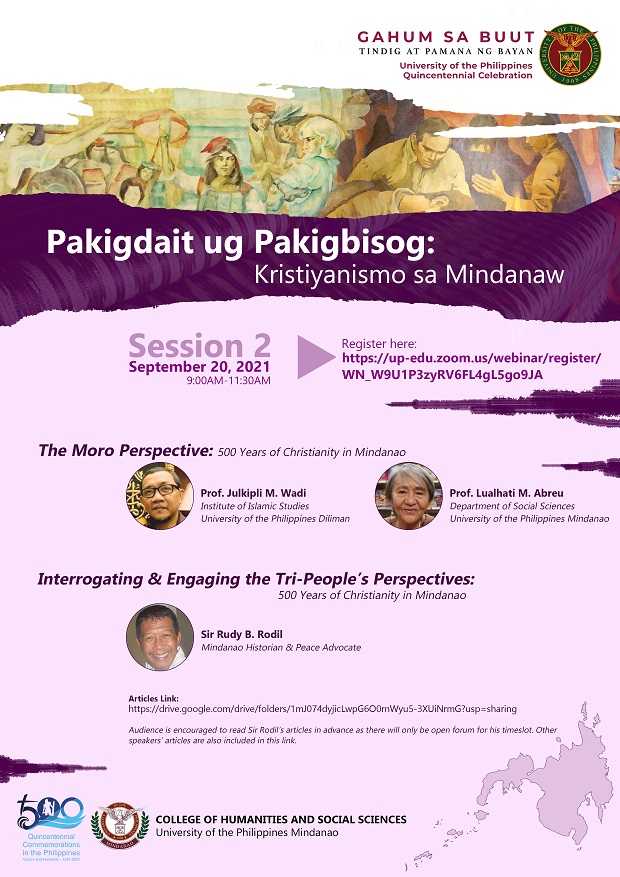 |
||
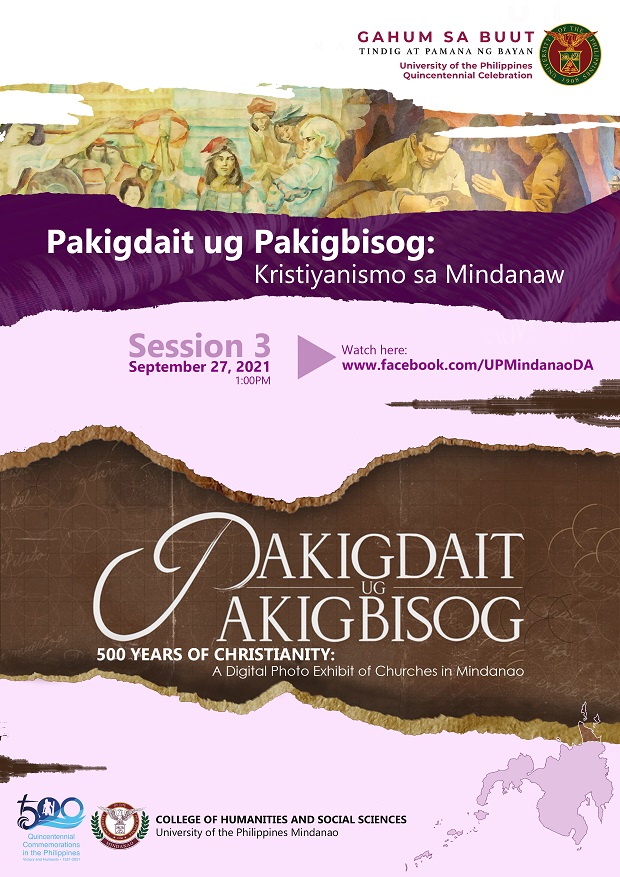 |
Lock full review www.8betting.co.uk 888 Bookmaker